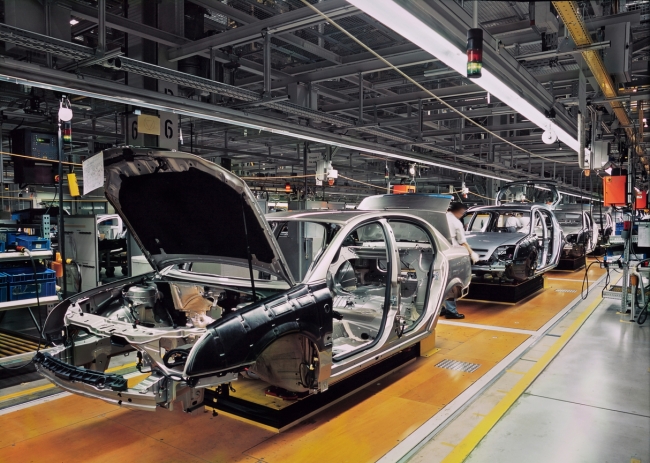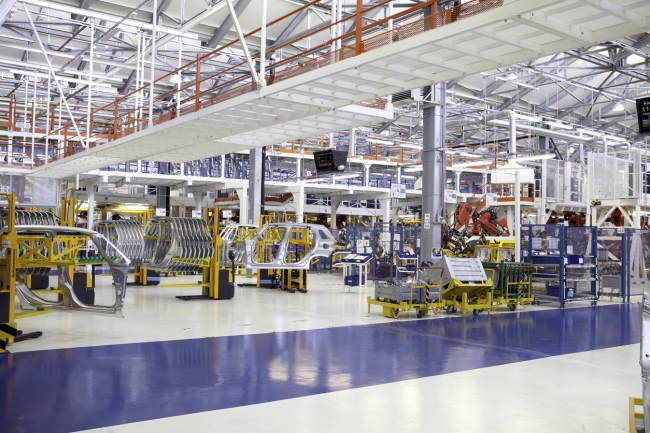3 minute read
Automotive export growth seen beyond Europe
New research has revealed that three out of the top five fastest growing markets for the UK automotive sector are outside Europe. These markets include the USA, Japan and Australia, where UK exports are growing at 4.3%, 3% and 2.6% respectively.
The Netherlands and Italy make up the remaining top five where exports are expected to grow at 4.3% and 2.1% per year to 2021.
In all, automotive exports to these five markets were worth $17.9bn last year. The projected growth could generate an extra $677.7m a year for UK exports to 2021.

Three of the top five fastest growing markets include the USA, Japan and Australia where UK exports are growing at 4.3%, 3% and 2.6% respectively / Picture: Getty/iStock
At $54.7bn, the automotive sector is the second largest export sector by value in the UK behind machinery and components, at $55bn. Automotive exports as a whole are expected to grow by more than 1.7% annually to 2021. This makes the UK the fourth fastest growing automotive exporter globally, behind Mexico, China and Spain respectively.
Wyelands Bank, set up to help businesses trade, grow and create jobs, commissioned the research to better understand the role of imports and exports in the UK economy. It was prepared in collaboration with Global Trade Review, the leading trade and trade finance media company, and Coriolis Technologies, a trade data company, which has provided the data.
The automotive sector
The UK automotive industry is vital to the UK economy and hugely significant within UK manufacturing. The companies in the sector account for £104bn in turnover, created nearly 340,000 direct jobs and a further 814,000 in the whole sector value chain in 2017.
Overall, automotive exports were worth $54.7bn in 2017, nearly half a billion more than in 2016.
Iain Hunter, CEO at Wyelands Bank, said: “As the UK’s second largest export sector, automotive manufacturers are an important source of export growth to 2021. What’s more, given 58% of companies in the automotive sector are SMEs, we can see how important SMEs are to UK trade.
“Manufacturing is a significant contributor to the UK’s role in global supply chains, as these automotive businesses demonstrate.”
UK automotive imports were worth $85.6bn in 2017 – an increase of more than $5bn from 2016. The UK imports an estimated 42% of the value of the cars it exports and has a large trade deficit in the automotive sector.
Looking at components in more detail, the UK has a trade deficit in gear boxes, dashboards, brakes, windscreen glass, rev and speed monitors, and bumpers and bumper parts. Only in radiators and engines does the UK export roughly what it imports.
The situation is similar for powertrain and assembly components where the UK has a deficit across all areas other than car seats where there is a modest surplus. Parts in deficit are safety belts, chassis with engines, silencers and exhausts, car bodies, suspension and shock absorbers, tyres, steering wheel and columns, and drive axels.

In all, automotive exports to these five markets were worth $17.9bn last year / Picture: Getty/iStock
The UK is one of the most open economies
More widely, trade accounts for 58% of UK GDP. This makes the UK economy one of the most open in the G20, and more open than China, America and Japan. In 2016, the UK exported goods worth US$433.5bn and imported goods worth US$678.1bn.
Regional growth from Asia Pac and South America
Looking at the regional picture for UK exports, Europe remains the UK’s biggest trading partner for exports with a 46.3% share. North America is next with 17.2%, while Asia Pacific (7%), Sub-Saharan Africa (5.4%), Mena (1.8%) and South America (1.2%) follow.
However, the fastest growing market is Asia Pacific, where UK exports are expected to grow at 3% a year to 2021 and South America, where this is expected to grow by around 0.5% annually until 2021.
Iain added: “Behind these headline economic figures, trade is important because it creates jobs. It has helped to contribute to the UK’s record employment levels, providing financial security for millions of families up and down the country.
“However, in order for businesses to succeed, they need working capital. It is only by providing better access to funding that we can support businesses to trade, grow and create jobs.”
The analysis is based on the trends and patterns in trade flows, which it projects forward. It does not account for potential political or policy changes.
